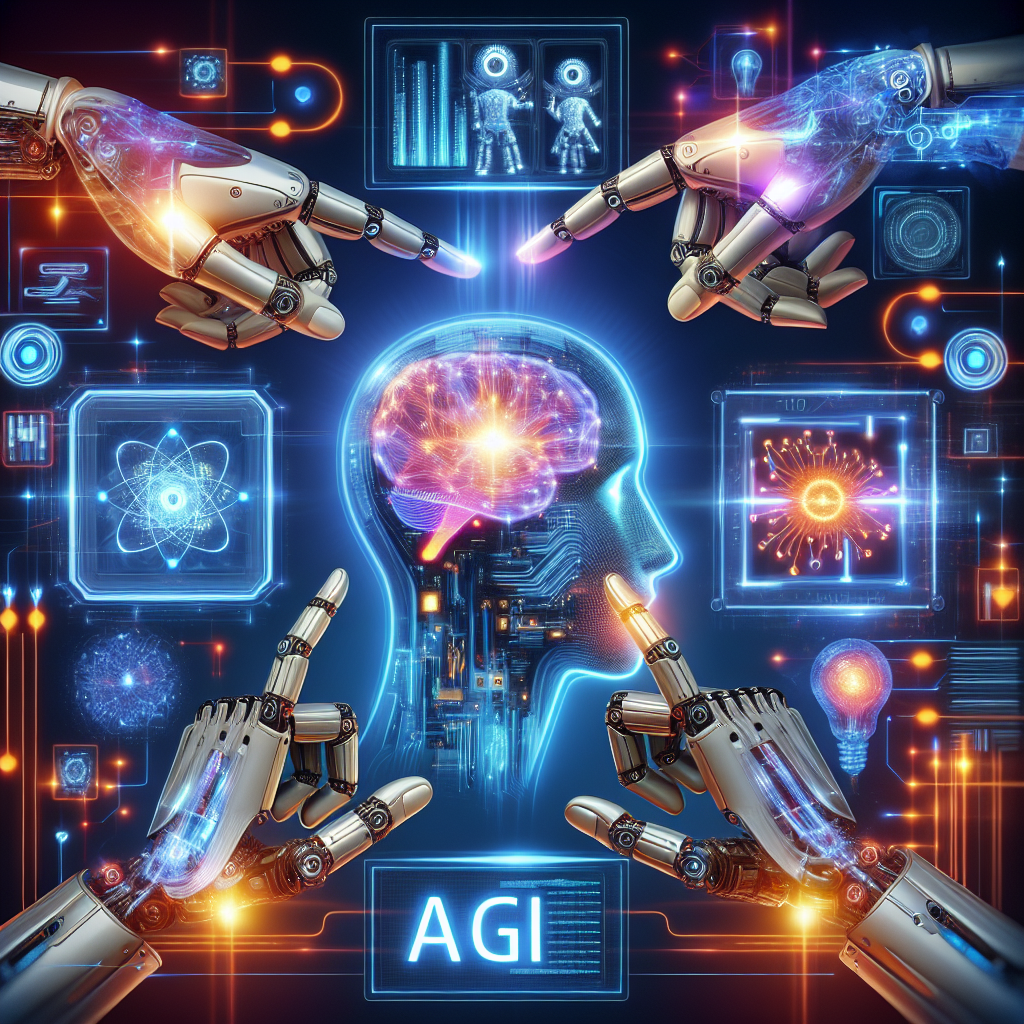Artificial General Intelligence (AGI) is a term that has been circulating in the world of artificial intelligence for quite some time now. It refers to the development of machines that possess the ability to perform any intellectual task that a human can. This concept goes beyond the current capabilities of AI systems, which are designed for specific tasks and lack the versatility and adaptability of human intelligence.
The idea of AGI has captivated researchers and futurists alike, as it represents a major milestone in the field of AI technology. The development of AGI has the potential to revolutionize various industries and reshape the way we interact with technology. However, there are also concerns about the implications of creating machines that are as intelligent as humans, and the ethical and societal challenges that may arise as a result.
In this article, we will explore the concept of AGI and speculate on the future of AI technology beyond AGI. We will discuss the potential benefits and risks of developing AGI, as well as the implications for society and the economy. We will also delve into some of the key questions and concerns surrounding AGI, and provide answers to frequently asked questions about this emerging technology.
Understanding Artificial General Intelligence
Artificial General Intelligence is often described as the holy grail of AI research, as it represents the ultimate goal of creating machines that can replicate human intelligence in all its complexity. While current AI systems excel at performing specific tasks, such as image recognition or natural language processing, they lack the ability to generalize their knowledge and adapt to new situations in the way that humans can.
AGI aims to bridge this gap by creating machines that possess the cognitive abilities of humans, such as reasoning, problem-solving, and creativity. These machines would be capable of learning from experience, making decisions autonomously, and interacting with the world in a meaningful way. The development of AGI has the potential to revolutionize a wide range of industries, from healthcare and finance to transportation and entertainment.
However, achieving AGI is no easy feat, as it requires overcoming a number of technical challenges. One of the biggest hurdles is developing algorithms and architectures that can support the diverse range of cognitive abilities that make up human intelligence. Researchers are also grappling with issues such as ethical considerations, safety concerns, and the potential impact of AGI on society.
Speculations on the Future of AI Technology
Beyond AGI, there are a number of exciting possibilities for the future of AI technology. One of the most intriguing prospects is the development of Artificial Superintelligence (ASI), which refers to machines that surpass human intelligence in every conceivable way. ASI would possess a level of cognitive ability that is far beyond what humans are capable of, and could potentially solve some of the most complex problems facing humanity.
With ASI, we could see breakthroughs in areas such as scientific research, climate change mitigation, and healthcare. Machines with superhuman intelligence could revolutionize the way we approach these challenges, offering new insights and solutions that were previously unimaginable. However, there are also concerns about the risks of creating machines that are more intelligent than humans, and the potential consequences of losing control over AI systems.
Another exciting prospect for the future of AI technology is the development of Artificial Emotional Intelligence (AEI). This refers to machines that can understand and express emotions, as well as engage in empathetic interactions with humans. AEI has the potential to enhance the user experience of AI systems, making them more responsive and adaptable to human needs.
AEI could also have applications in fields such as mental health care, where machines could provide emotional support and companionship to individuals in need. However, there are also ethical considerations to take into account, such as the potential for emotional manipulation and the implications of giving machines the ability to experience and express emotions.
FAQs about AGI and Beyond
Q: What are the potential benefits of AGI?
A: AGI has the potential to revolutionize a wide range of industries, from healthcare and finance to transportation and entertainment. Machines with human-level intelligence could automate complex tasks, make better decisions, and improve efficiency in various sectors.
Q: What are the risks of AGI?
A: There are concerns about the potential risks of creating machines that are as intelligent as humans. These include issues such as job displacement, ethical considerations, and the potential for AI systems to act in ways that are harmful to humans.
Q: What is the difference between AGI and ASI?
A: AGI refers to machines that possess human-level intelligence, while ASI refers to machines that surpass human intelligence in every conceivable way. ASI represents the ultimate goal of AI research, and has the potential to revolutionize society in profound ways.
Q: What are the ethical considerations surrounding AGI?
A: There are a number of ethical considerations to take into account when developing AGI, such as issues of privacy, bias, and accountability. It is important to ensure that AI systems are designed and used in a way that is fair, transparent, and respectful of human values.
Q: How can we ensure the safe development of AGI?
A: Ensuring the safe development of AGI requires a multi-faceted approach that includes collaboration between researchers, policymakers, and industry stakeholders. It is important to establish guidelines and regulations that promote ethical AI development, as well as invest in research on AI safety and security.
In conclusion, AGI represents a major milestone in the field of AI technology, with the potential to revolutionize various industries and reshape the way we interact with technology. While there are risks and challenges associated with developing machines that are as intelligent as humans, there are also exciting possibilities for the future of AI technology beyond AGI. By addressing key questions and concerns surrounding AGI, we can work towards a future where AI systems are safe, ethical, and beneficial to society.

